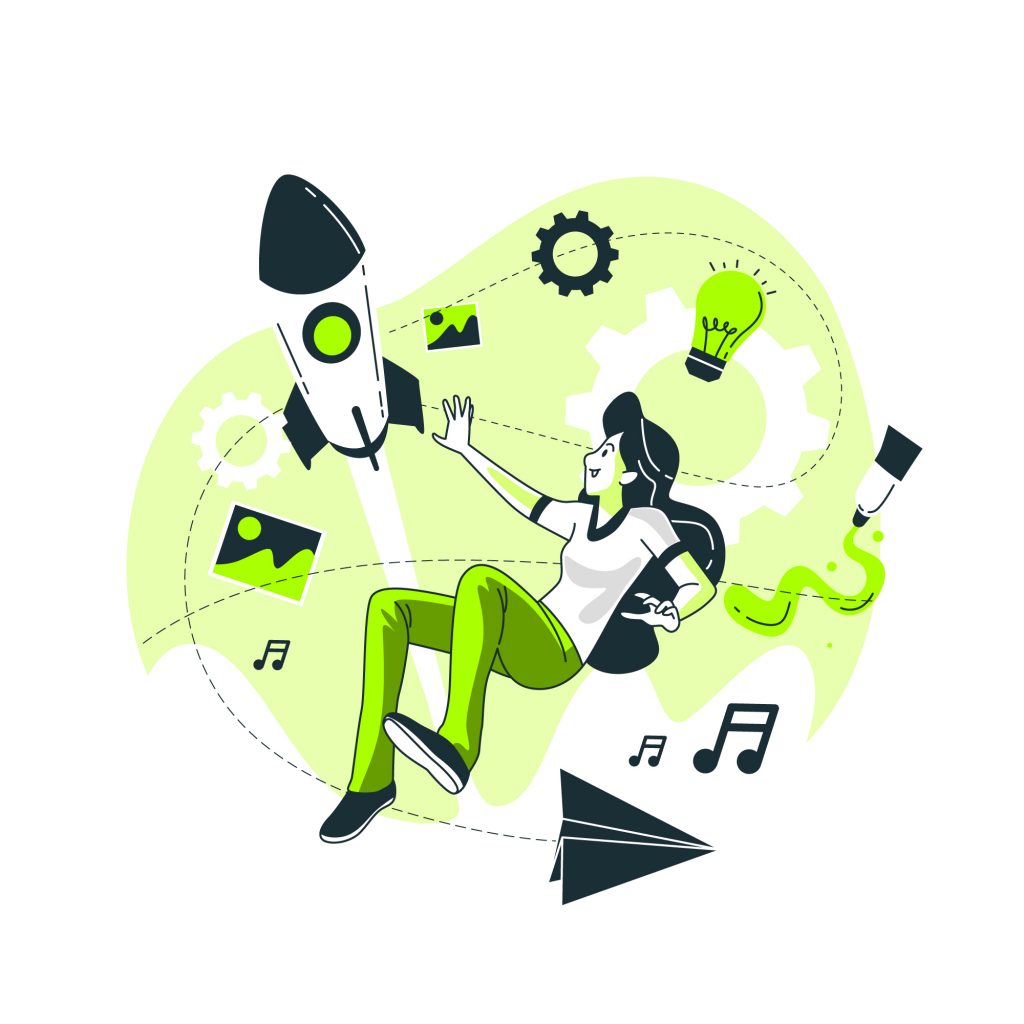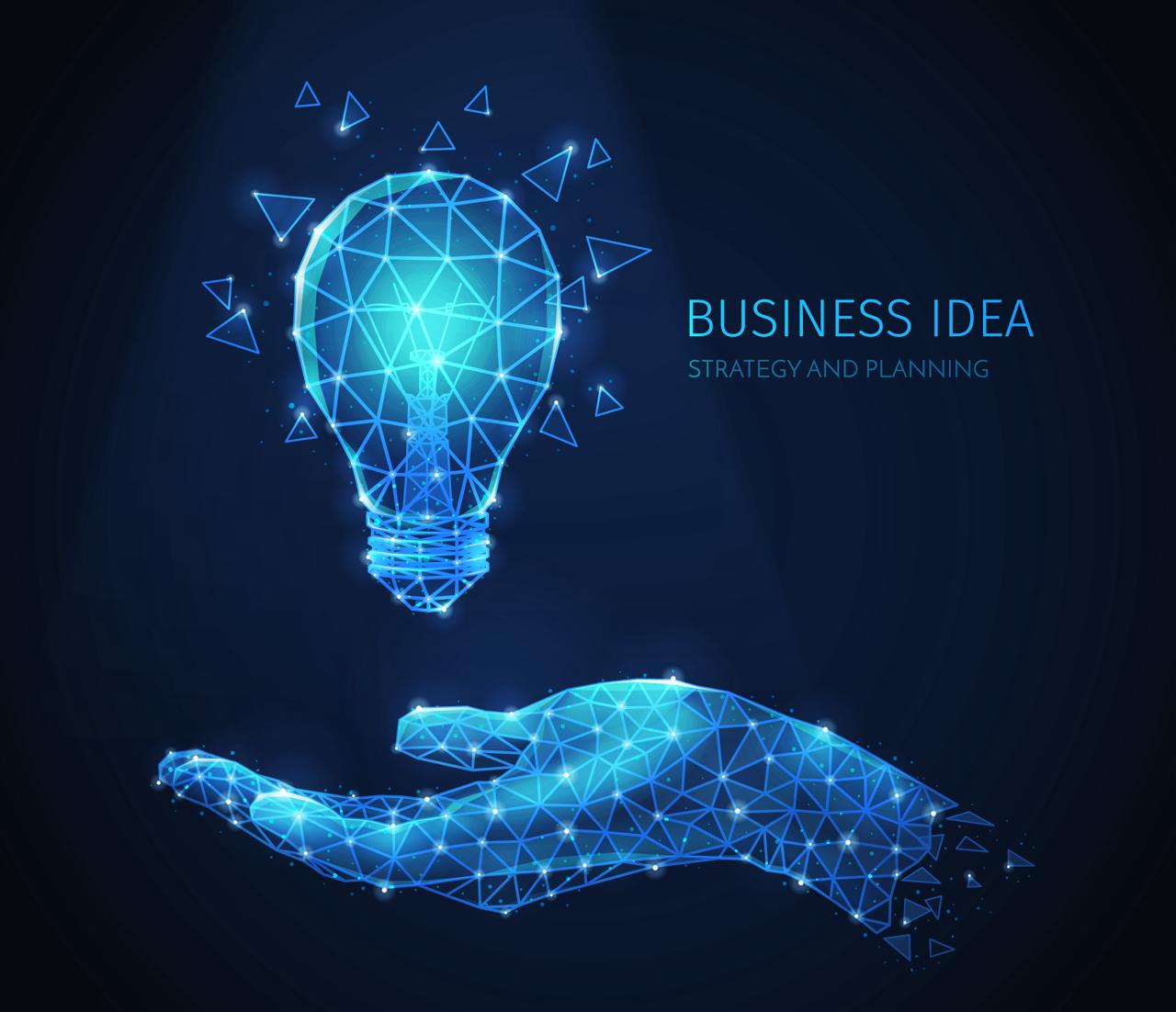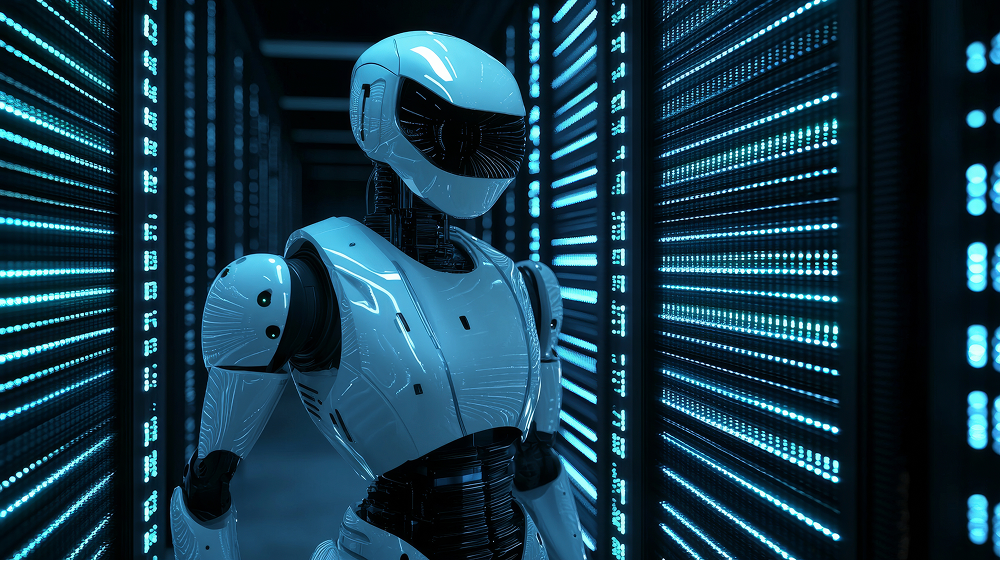AI agents in business are no longer just trending—they’re transforming how companies function from the inside out. In 2025, launching an AI agent business is one of the smartest moves an entrepreneur can make. From streamlining operations to replacing entire support teams, these intelligent systems offer endless possibilities. Whether you’re searching for AI agent ideas to create, AI agent startup ideas, or AI agent ideas for business automation, this guide will walk you through the top 15 AI agent business ideas in 2025 that stand out.
With more businesses seeking to cut costs and boost efficiency, now is the perfect time to explore AI agents’ startup ideas that deliver real-world value. Read on to discover the most innovative AI agents project ideas that are already reshaping industries — and learn how to turn your own AI agent idea into the next big thing.
What does the market for AI agents look like?
The AI agent market is expanding rapidly, driven by a global push toward automation and intelligent decision-making. These systems—capable of learning, adapting, and acting autonomously—are increasingly integrated into business operations across sectors. Whether supporting customer interactions, managing internal workflows, or analyzing data in real time, AI agents are helping organizations improve efficiency and reduce operational costs.
Underpinning this growth are advances in core technologies such as machine learning, natural language processing, and computer vision. These innovations enable AI agents to perform complex, context-aware tasks that once required human input. As a result, interest in developing practical AI agent business ideas and scalable solutions has surged.
By 2025, industry forecasts suggest that the market for autonomous agents will grow significantly, reflecting both the maturity of the technology and the rising demand for intelligent, self-improving systems. For those exploring AI agent ideas for business, this evolving landscape presents a timely and high-potential opportunity.
Business Concepts for AI Agents in 2025
As artificial intelligence continues to advance, AI agents are unlocking entirely new business models across industries. These autonomous systems are now being deployed to perform specialized tasks—offering scalable, personalized services with minimal human oversight. If you’re exploring AI agent business ideas 2025, here are ten promising concepts that reflect where the market is heading.
1. AI Wellness Coaches
With rising interest in preventative health, AI agents in business are being used to create digital wellness coaches that provide users with daily health tips, customized workout suggestions, mindfulness prompts, and habit tracking. These agents adapt to personal progress and can integrate with wearable tech, offering a scalable way to promote healthier lifestyles—especially appealing in remote or corporate wellness settings.
2. Professional AI Mentors
In career development and skill-building, AI agent ideas for business include launching intelligent mentors that guide professionals through learning paths, resume feedback, interview simulations, and soft skill coaching. These AI mentors can personalize learning plans based on goals and market demands, making them a valuable tool for job seekers and HR platforms alike.
3. AI-Powered Home Management Services
From smart appliance integration to scheduling repairs and ordering groceries, AI agents can act as personal home managers. These systems offer proactive suggestions—like energy-saving tips or inventory restocks—by analyzing household habits. This AI agent business concept aligns perfectly with the growing smart home ecosystem and aging-in-place technologies.
4. Virtual Travel Consultants
For travel planning, AI agents are becoming hyper-personalized concierges. They can recommend destinations, plan itineraries, book transportation, and even provide real-time updates during the trip. Entrepreneurs can monetize this AI agent idea by building subscription-based or affiliate-driven travel bots tailored for niches like luxury travel, digital nomads, or family vacations.
5. Pet Care Providers
AI agents startup ideas are emerging in pet tech, where AI tools can monitor pet behavior, suggest feeding schedules, recommend vets, or even interact with pets while owners are away. Smart pet companions powered by conversational AI and machine learning can help reduce stress for busy or traveling owners.
6. AI-Powered Legal Aides
One of the more specialized AI agent ideas to create involves legal assistants that help individuals or small businesses understand contracts, prepare legal documents, and navigate regulatory compliance. While not replacing lawyers, these AI agents can lower costs and improve accessibility to basic legal services.
7. Financial Consultants and Budget Bots
AI agent business ideas are gaining traction in fintech, with autonomous financial consultants helping users manage budgets, track expenses, optimize savings, and recommend investment strategies. These tools can dynamically adjust plans based on market data or personal financial behavior, offering 24/7 support without traditional advisory fees.
8. Digital Personal Assistants
A classic yet continually evolving AI agent idea, smart assistants now go beyond managing calendars. They can write emails, automate recurring tasks, transcribe meetings, and even learn user preferences to anticipate needs. Targeting niche markets—like freelancers, students, or executives—can differentiate your offering in this saturated field.
9. Content Developers and Copy Editors
Generative AI combined with editorial logic creates AI agents that support writers, marketers, and designers. These agents can generate articles, edit text for clarity and tone, and suggest improvements based on SEO or brand style. This AI agent startup idea is ideal for content-heavy businesses needing scale and speed without compromising quality.
10. AI Educators and Tutors
With online education booming, AI-powered tutors are helping students grasp difficult subjects through adaptive learning and real-time feedback. These AI agents project ideas are especially useful for standardized test prep, language learning, or tutoring underserved populations, offering a high-impact way to democratize education.
Key Factors to Consider When Choosing an AI Agent Business Concept
Selecting the right AI agent business idea in 2025 requires more than chasing trends—it demands a strategic evaluation of market potential, technological feasibility, and long-term sustainability. Here are essential factors to consider before launching your venture.
1. Market Demand and Value Proposition
Before investing in any AI agent startup idea, assess whether the market truly needs the solution. Is there a specific pain point your AI agent addresses more effectively than existing tools? Look for underserved niches or outdated systems that are ripe for automation. Validate demand with user feedback or pilot testing before scaling.
2. Technical Feasibility and Integration
Not all AI agent ideas are simple to implement. Some require sophisticated natural language processing, real-time decision-making, or deep integration with legacy systems. Evaluate your access to the necessary AI models, infrastructure, and data sources. Also consider how easily your solution can integrate with existing platforms or workflows.
3. Data Availability and Quality
AI agents thrive on structured, high-quality data. Without it, performance will suffer. Ensure the concept you choose can be supported with reliable data inputs—either from public APIs, customer behavior, or internal databases. A clear data governance strategy is key for both functionality and compliance.
4. Regulatory and Ethical Considerations
Many AI agent business ideas—especially those in finance, healthcare, or legal sectors—face strict data privacy and ethical oversight. Be prepared to implement transparent AI decision-making processes, address potential biases, and comply with frameworks like GDPR, HIPAA, or CCPA.
5. Scalability and Maintenance
Consider whether your business model can scale efficiently. Will your AI agent improve over time with user data? How much ongoing maintenance or training will it require? A well-designed agent should be able to learn, adapt, and operate with minimal human supervision while maintaining consistent value.
By carefully weighing these factors, you’ll be better positioned to choose an AI agent idea that’s not only innovative but also viable and future-proof.
What Are AI Agents?
AI agents are autonomous systems powered by artificial intelligence that can perceive their environment, make decisions, and take actions to achieve specific goals—often without direct human intervention. Unlike traditional software, which follows fixed instructions, AI agents use machine learning, natural language processing, and real-time data to adapt and improve over time.
These agents can perform a wide variety of tasks, from answering customer queries to optimizing logistics or analyzing financial trends. Some operate independently, while others work collaboratively in multi-agent systems to handle more complex workflows.
AI agents exist along a spectrum—from simple rule-based bots to advanced systems capable of self-learning and strategic reasoning. The most sophisticated ones can plan multistep processes, adjust to unexpected variables, and even interact with other tools and users seamlessly.
As their capabilities grow, AI agents are becoming essential in modern business, enabling automation at scale and unlocking entirely new operational models.
What Are the Benefits of AI Agents?
AI agents offer a wide range of benefits by combining autonomy, adaptability, and continuous learning. Unlike static automation tools, these intelligent systems are capable of dynamic decision-making, making them valuable assets for businesses aiming to streamline operations and improve outcomes.
One of the most significant advantages is increased productivity. AI agents handle routine, repetitive, or multi-step tasks—freeing up human teams to focus on strategy, creativity, and innovation. This also helps reduce operational costs by minimizing manual errors and inefficiencies.
AI agents also enhance accuracy. They can assess their own performance, flag inconsistencies, and correct mistakes in real time. This self-monitoring capability leads to more reliable outputs, particularly in data-driven environments.
Another key benefit is round-the-clock availability. Unlike human teams, AI agents can operate 24/7, whether responding to customer queries, managing workflows, or executing tasks that would otherwise require off-hours staffing.
These agents are also highly scalable. As business demands grow, AI systems can adapt to handle increased workloads without major infrastructure changes—offering unmatched flexibility.
In addition, AI agents promote cross-functional integration, breaking down silos between departments by coordinating tasks and sharing insights across systems. Businesses can even train bespoke agents to meet specific needs, tailoring workflows to internal processes.
Finally, AI agents enable data-informed decision-making by analyzing complex datasets, identifying trends, and suggesting strategic actions—empowering leadership with timely, actionable insights.
What Types of AI Agents Are There?
AI agents come in several types, each offering different levels of complexity, autonomy, and adaptability. Understanding these types helps businesses select the right combination for their operations or develop powerful multi-agent systems tailored to their needs. Here are the six primary types of AI agents:
Reactive Agents
Reactive agents operate based on preset rules and immediate input. They don’t retain memory of past interactions and simply respond to triggers with predefined actions. These agents are ideal for straightforward, repetitive tasks like responding to FAQs in customer service chatbots. Their simplicity makes them efficient, though limited in flexibility.
Proactive Agents
Proactive agents go beyond reaction—they anticipate needs and take initiative. By analyzing patterns and using predictive models, they can identify potential issues before they arise and recommend solutions. These agents are commonly used in monitoring systems, such as predictive maintenance in manufacturing or supply chain optimization.
Hybrid Agents
Hybrid agents blend reactive and proactive capabilities. They can quickly respond to immediate requests while also observing longer-term patterns and making decisions based on both rules and learned behavior. This versatility makes them suitable for complex workflows where both real-time reaction and strategic foresight are needed.
Utility-Based Agents
These agents evaluate different courses of action and choose the one that offers the highest utility, or value, based on user-defined goals. Common in robotics and decision-support systems, they calculate the most beneficial outcome by considering multiple variables and preferences.
Learning Agents
Learning agents improve their behavior over time by analyzing past performance, gathering data, and adapting strategies. These agents use feedback loops and often incorporate reinforcement learning, making them ideal for personalized digital assistants or adaptive recommendation systems.
Collaborative Agents
Collaborative agents work in coordination with other agents—or even human teams—to tackle complex, distributed tasks. They share information, delegate responsibilities, and optimize collective outcomes, making them useful in enterprise-level applications and dynamic, multi-departmental environments.
Each type plays a unique role in shaping efficient, intelligent systems that meet specific business needs.

How to Launch a Business Focused on AI Agents
Starting a business around AI agents in 2025 involves a blend of strategic planning, technical execution, and market alignment. Here’s a streamlined path to building your own AI agent startup.
1. Define the Agent’s Purpose
Begin by identifying the specific business function your AI agent will serve—whether it’s automating customer service, optimizing workflow, or acting as a digital consultant. Clear use cases help ensure the agent is aligned with a real problem and delivers measurable value.
2. Validate the Market Need
Conduct market research using surveys, early-access waitlists, or landing pages to validate your idea. Analyze competitors and existing AI agent business ideas to understand demand, gaps, and differentiation opportunities.
3. Choose the Right Technology Stack
Use open-source frameworks or APIs like LangChain or Python-based agent libraries to prototype your idea quickly. Your tech stack should support learning, reasoning, and integration with external tools or platforms.
4. Gather and Prepare Data
AI agents require high-quality, task-relevant data. Clean, structured datasets are essential for training accurate, responsive agents. Focus on data privacy and compliance from the outset.
5. Build and Train the Agent
Design a modular architecture that can scale and adapt. Use iterative testing and model refinement to improve accuracy and behavior over time. Define KPIs such as efficiency gains, customer satisfaction, or time saved.
6. Launch and Monetize
Deploy the agent with user onboarding and feedback loops. Monetization models may include subscriptions, per-task fees, or enterprise solutions. Continuous updates and user engagement are key to long-term success.
A well-planned AI agent business can unlock new efficiencies, insights, and scalable revenue streams in the evolving digital economy.
What Is the Price of Creating an AI Agent?
The cost of developing an AI agent in 2025 can range widely based on complexity, features, and industry use. A basic AI agent like a chatbot or virtual assistant may cost between $10,000 and $50,000. For mid-tier agents that include predictive analytics or workflow automation, expect to invest $50,000 to $150,000. Advanced AI agents—such as those using generative models or real-time decision-making—can exceed $1 million, especially in regulated industries. Costs also depend on data quality, model training, integration needs, and compliance requirements. Careful planning and phased development can help manage budgets effectively.
How Long Does It Take to Launch an AI Agent?
The development timeline for an AI agent depends on its complexity and scope. A basic MVP (Minimum Viable Product), such as a simple chatbot or task automation tool, can be launched in 4 to 6 weeks. For mid-tier or enterprise-level AI agents that involve advanced features like predictive modeling, integrations, and data pipelines, the process can take 3 to 6 months or longer. Timelines also vary based on data availability, training requirements, testing cycles, and regulatory compliance. Starting with a lean version and scaling iteratively is often the most efficient approach.
Conclusion
AI agents are rapidly transforming how businesses operate, offering smarter, faster, and more cost-effective solutions across industries. Whether you’re exploring wellness automation, legal support, virtual travel consulting, or financial optimization, the opportunities for building an AI agent business in 2025 are vast and growing. With the right strategy—defining a clear use case, selecting the right tools, ensuring data quality, and planning for scalability—you can create a valuable, future-ready product. As technology and demand evolve, early adopters who act now will be well-positioned to lead in this new wave of intelligent automation. The future of business is agent-powered—are you ready?




